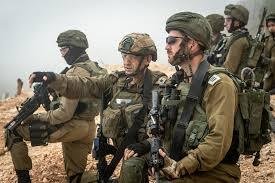The debate over the conscription of ultra-Orthodox men into the Israel Defense Forces (IDF) has once again come to the forefront, highlighting a deepening divide within Israeli society. This contentious issue, which has sparked legal battles, political maneuvering, and societal debates, demands a balanced and thoughtful approach to reconcile religious traditions with national obligations.
The ultra-Orthodox community, known as Haredim, has historically been exempt from mandatory military service, allowing men to devote their lives to religious study. This exemption, while rooted in the early years of Israel’s formation, has become increasingly controversial as the demographic and political landscape evolves.
The Movement for Quality Government in Israel (MQG) recently filed a petition with the High Court of Justice, urging the immediate drafting of 63,000 ultra-Orthodox men. MQG’s argument is based on the principle of equality, asserting that exempting one segment of society from military service creates an unfair burden on others. “Exempting ultra-Orthodox men from military service creates a significant disparity in the burden shared by all Israeli citizens. It is essential for the principles of equality and fairness that all sectors of society contribute to national defense,” said Eliad Shraga, chairman of MQG.
The High Court is now tasked with addressing this petition, a decision that could have far-reaching implications for Israeli society and its military.
Prime Minister Benjamin Netanyahu and Defense Minister Yoav Gallant have both acknowledged the complexity of the issue. Netanyahu has called for a balanced approach that respects the religious commitments of the ultra-Orthodox community while addressing broader societal expectations. Gallant emphasized the importance of maintaining a robust and inclusive IDF, highlighting the need for policies that integrate the ultra-Orthodox without infringing on their religious freedoms.
The political landscape is equally divided. Secular and modern Orthodox Israelis argue that all citizens should share the burden of national defense, while the ultra-Orthodox community and their political representatives maintain that Torah study is a critical contribution to the nation’s spiritual and moral fabric.
This issue is not just a matter of policy but touches on the very identity of the Israeli state. It raises questions about the role of religion in public life, the nature of citizenship, and the responsibilities that come with it. The integration of ultra-Orthodox men into the IDF could potentially lead to greater social cohesion, but it must be handled with sensitivity to avoid deepening divisions.
Internationally, human rights organizations and other nations are watching closely. They emphasize the need for policies that balance national security with respect for individual rights and community traditions. The outcome of this debate could influence how Israel is perceived globally in terms of its commitment to democratic principles and equality.
As the High Court deliberates, it is crucial for all stakeholders to engage in meaningful dialogue. Finding a solution that honors both the needs of national security and the religious convictions of the ultra-Orthodox community is not only possible but necessary for the unity and future of Israeli society.



